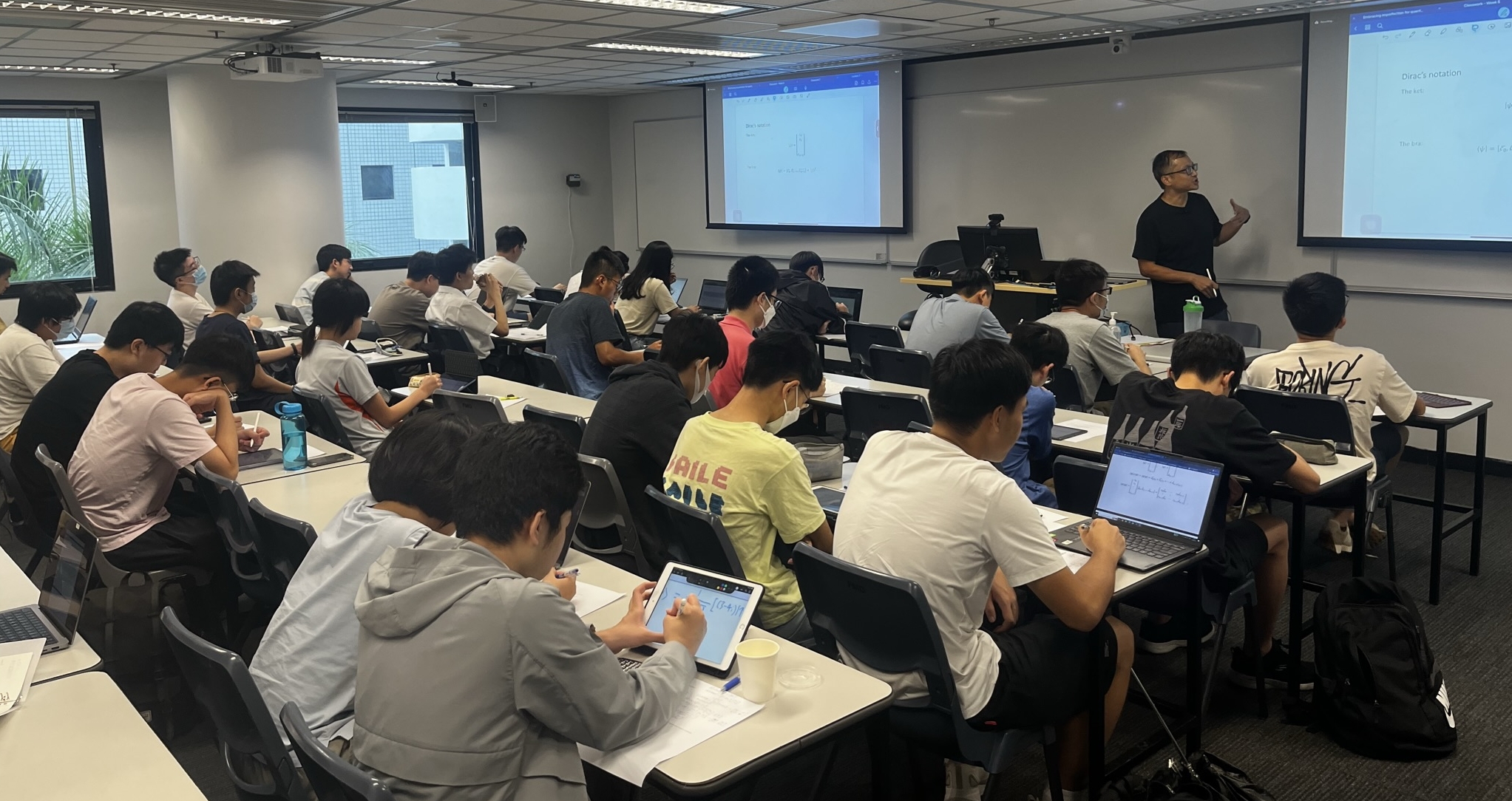
The Physics Department offers the following research-based postgraduate programs: MPhil in Physics, PhD in Physics, MPhil and PhD in Nano Science and Technology; and two taught postgraduate programs: MSc in Data-Driven Modeling and MSc in Physics.
Research-based Postgraduate Programs:
Application
- Master of Philosophy and Doctor of Philosophy Programs in Physics
- Master of Philosophy and Doctor of Philosophy Programs in Nano Science and Technology
Program Overview
The MPhil in Physics program aims at providing students with broad training that emphasizes the development of critical thinking and problem-solving skills.
The PhD in Physics program aims at providing research-oriented education for students interested in pursuing their long-term careers in basic and/or applied physics. It prepares students for worldwide competition and broad horizons in their career choices.
The MPhil in Nano Science and Technology program aims at training postgraduate students to conduct independent research in nano science and technology.
The PhD in Nano Science and Technology program aims at training postgraduate students in carrying out original research in nano science and technology, and to cultivate independent and innovative thinking.
Scientific computation serves as a bridge between the traditional domains of theoretical and experimental science. The Scientific Computation Concentration offers specialized programs to support the academic development of students in this multi-disciplinary area. Students who undertake discipline-specific research involving scientific computation are strongly encouraged to enroll in this Concentration.
Our postgraduate programs are backed up by a strong team of faculty members, who specialize in a variety of research interests. The research programs at the Physics Department cover not only traditional physics disciplines, such as condensed matter physics and high energy physics, but also biological physics, mesoscopic physics, computational physics, quantum physics, photonics, soft matter and nanomaterials science and technology. Read more: Research Area.
Joining the Department of Physics as a postgraduate student is an exciting prospect. The Department has received world recongnization for its research breakthroughs. The strong research culture within the Department, and the university as a whole, has encouraged such success, with frequent collaborations between experimental and theoretical faculty members.
Our postgraduate programs seek to provide students with a solid grounding in broad physics principles and techniques, an ambience for creative and innovative activities, and opportunities for cross-and inter-disciplinary research. Currently, the Department has over 170 research postgraduate students. In addition, programs of regular visiting faculty members/scholars, overseas exchanges, research awards and fellowships have provided tremendous opportunities to our PG students.
Taught Postgraduate Programs:
Application
Program Overview
The Master of Science (MSc) Program in Data-Driven Modeling is jointly offered by the Department of Physics and the Department of Mathematics. The program aims at training students with some science or engineering background who would like to prepare themselves for careers that require modeling skills based on information extracted from data. This program aims at training graduates to have strong skills in problem solving and logical thinking. These skills are essential for them to become competent in the data science sector. They will be trained to have hands-on experience in analyzing large amount of data, extract significant features from them, and hence provide valuable insights to understand complex situations and facilitate smart decision making for businesses, industries and services.
The Master of Science (MSc) Program in Physics is offered by the Department of Physics. The program focuses on scientific computing, and advanced materials physics and technology. We aim to upgrade and strengthen students’ knowledge in core areas of physics; and with various elective courses students can choose to specialize in a particular physics area. Students will gain knowledge of advanced materials for applications in next generation devices, and/or hands-on experience of learning various simulation and programming tools to solve physics and real-world problems. The overall aim is to enhance one’s fundamental knowledge in physics, promote critical thinking, problem solving and presentation skills. These important transferable skills are much ought-after by industry and commerce. The program may also be used as a stepping-stone towards a research postgraduate degree.